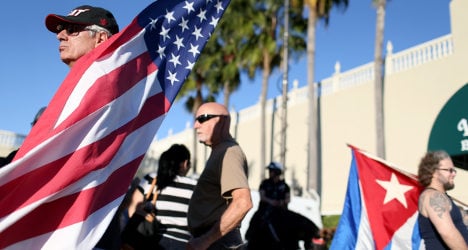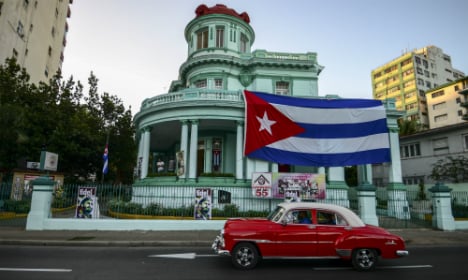"I want to welcome a new stage which puts an end to a disagreement that has lasted for 50 years," José Manuel García-Margallo said during a brief appearance before the media at the foreign ministry in Madrid.
"This future can only be built on the basis of respect for democracy and human rights," he added.
The Spanish foreign minister urged Havana to step up its reforms and called on Cuba, its former colony to sign international human rights agreements.
"The agreement that has been reached is of great significance. After 50 years both nations reestablish diplomatic relations and part of the embargo will be softened," the minister said.
In coordinated statements issued in Washington and Havana on Wednesday, Castro and Obama announced that diplomatic relations between the two countries were to be restored after having been cut over half a century before.
The statements thanked Pope Francis for what was described as "his crucial role" in the process.García-Margallo, who visited Cuba last month, refused to say if Madrid also played a role in the rapprochement, saying only that in diplomacy "discretion is the norm".
The announcement of the restoration of diplomatic relations between Cuba and the US came on the same day that the two countries pushed through a prisoner swap deal which saw the release of US citizen Alan Gross after five years in a Cuban prison in exchange for the release of three Cubans held in the US on suspicion of spying.
The imprisonment of Gross, accused of subversion was considered a major roadblock in the establishment of normal diplomatic relations between the two countries.
At the time of the Spanish foreign minister's visit to Cuba in November, diplomatic sources told Spain's El País newspaper that García-Margallo might be charged with delivering a message from Obama to Cuban authorities.
Those sources speculated García-Margallo might, on behalf of the US, ask Cuba to release Gross — a sign of good faith that could allow Obama and Castro to be seen together at April's Summit of the Americas in Panama City.
Spain mediated historic talks between Cuba's communist government and the Roman Catholic Church that freed 75 political opponents in 2010 and 2011. They had been sentenced to terms ranging from six to 28 years.
Cuba granted exile to 63 on the condition they be barred from returning, and most went to Spain. Twelve others who refused to leave jail under those conditions were released on parole and prohibited from leaving Cuba.
Spain is Cuba's third largest trading partner and the largest European investor in the country.



 Please whitelist us to continue reading.
Please whitelist us to continue reading.
Member comments